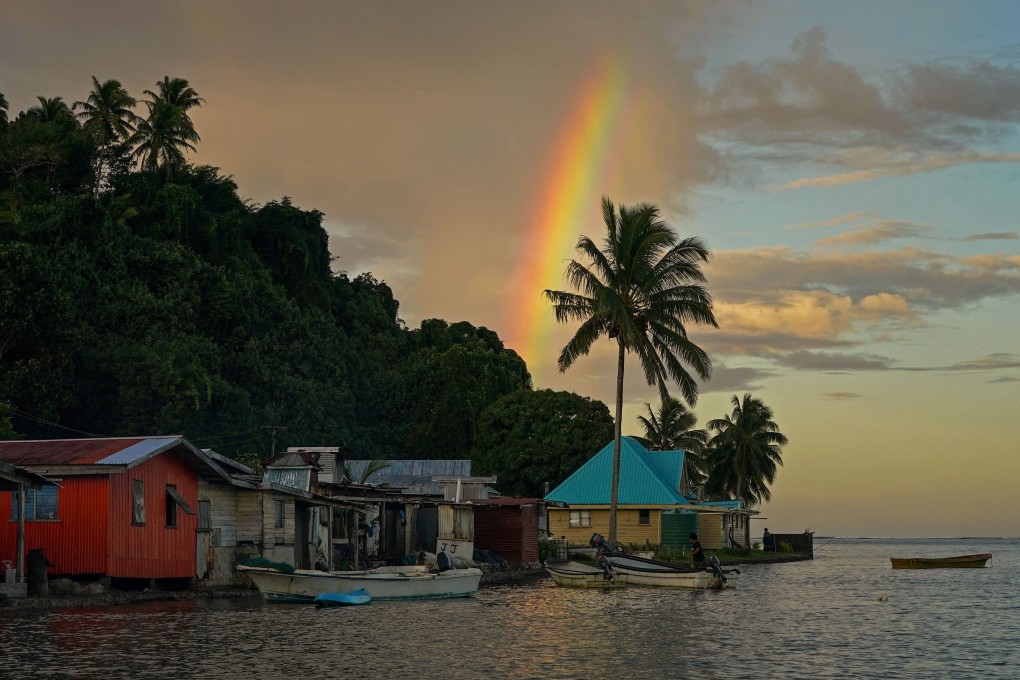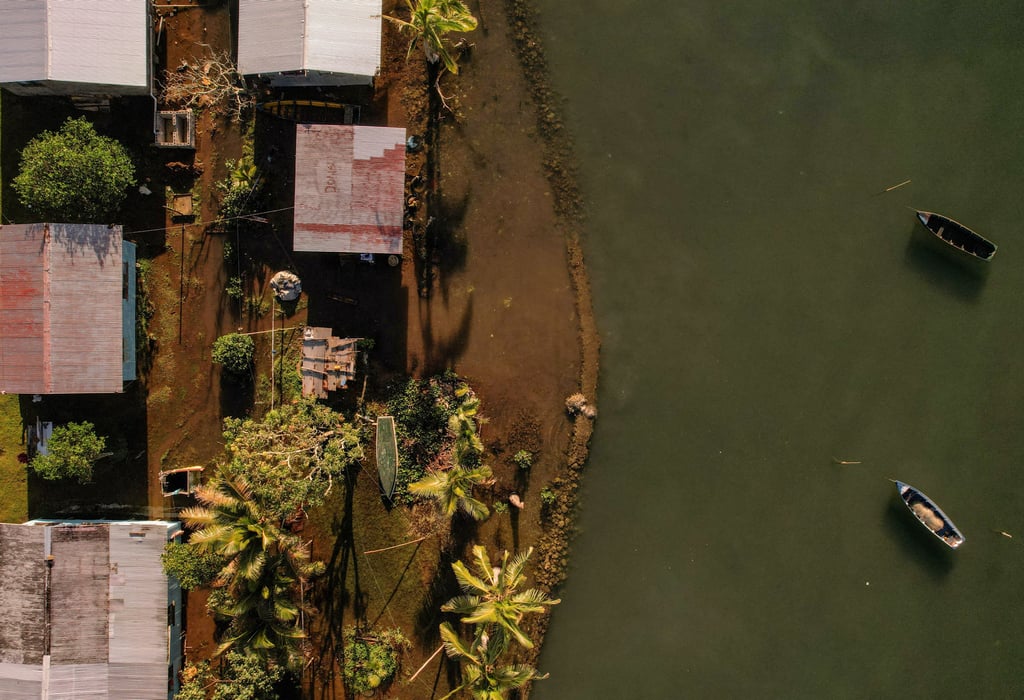Advertisement
Opinion | Why some Pacific Islanders are staying put even as climate change submerges their homes
- Some 800 communities may have to relocate due to climate change but almost all of Serua Island’s residents are staying because of deep-rooted links
- Voluntary immobility is not unique to Fiji. Globally, households and communities are also remaining where climate risks are increasing or already high
Reading Time:3 minutes
Why you can trust SCMP

Climate change is forcing people around the world to abandon their homes. In the Pacific Islands, rising sea levels are leaving communities facing tough decisions about relocation. Some are choosing to stay in high-risk areas.
Advertisement
Our research investigated this phenomenon, known as “voluntary immobility”.
The government of Fiji has identified around 800 communities that may have to relocate due to climate change impacts (six have already been moved). One of these is the village on Serua Island, which was the focus of our study.
Coastal erosion and flooding have severely damaged the village over the past two decades. Homes have been submerged, seawater has spoiled food crops and the seawall has been destroyed. Despite this, almost all of Serua Island’s residents are choosing to stay.
We found their decision is based on “Vanua”, an Indigenous Fijian word that refers to the interconnectedness of the natural environment, social bonds, ways of being, spirituality and stewardship of place. Vanua binds local communities to their land.

Residents feel an obligation to stay

Advertisement